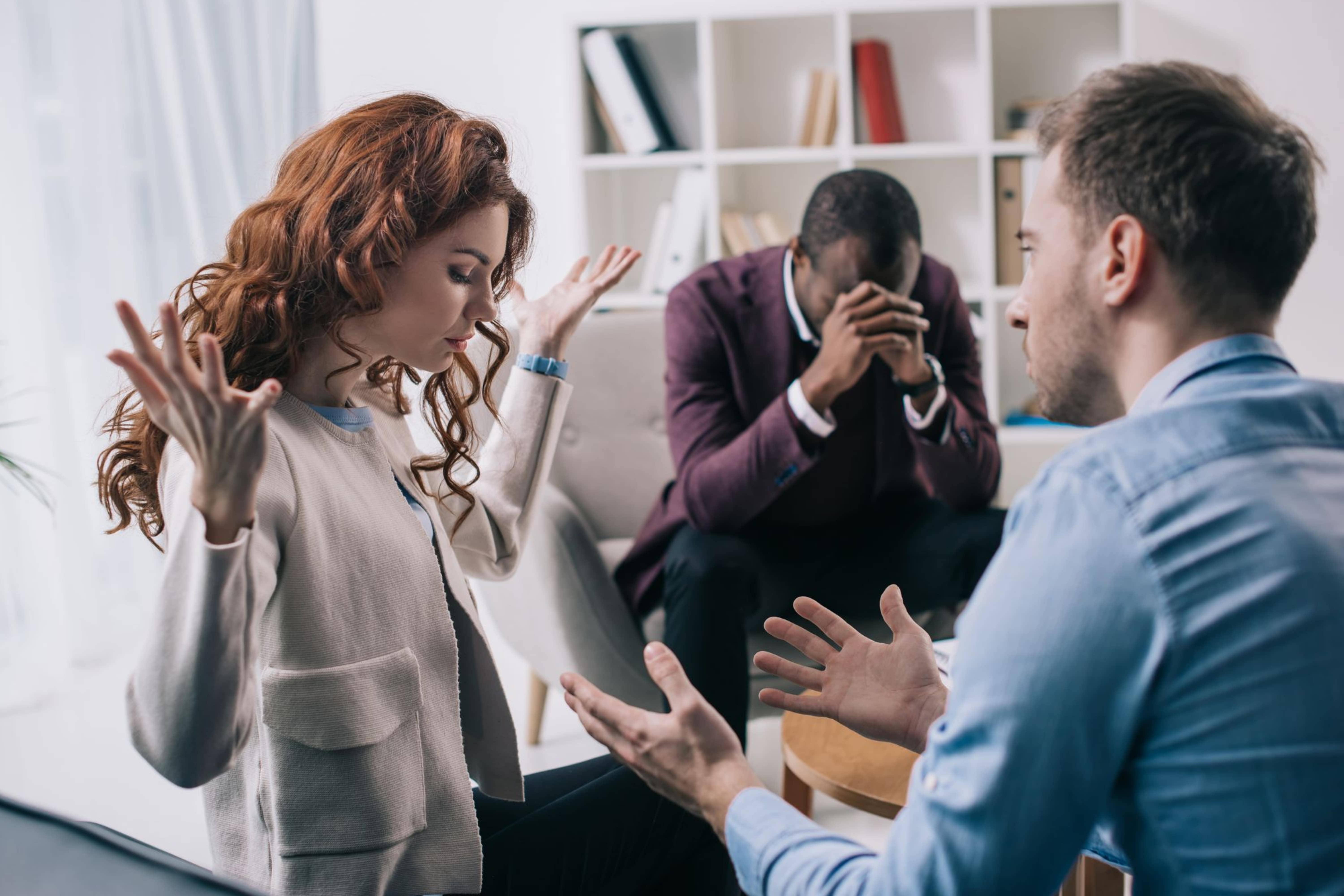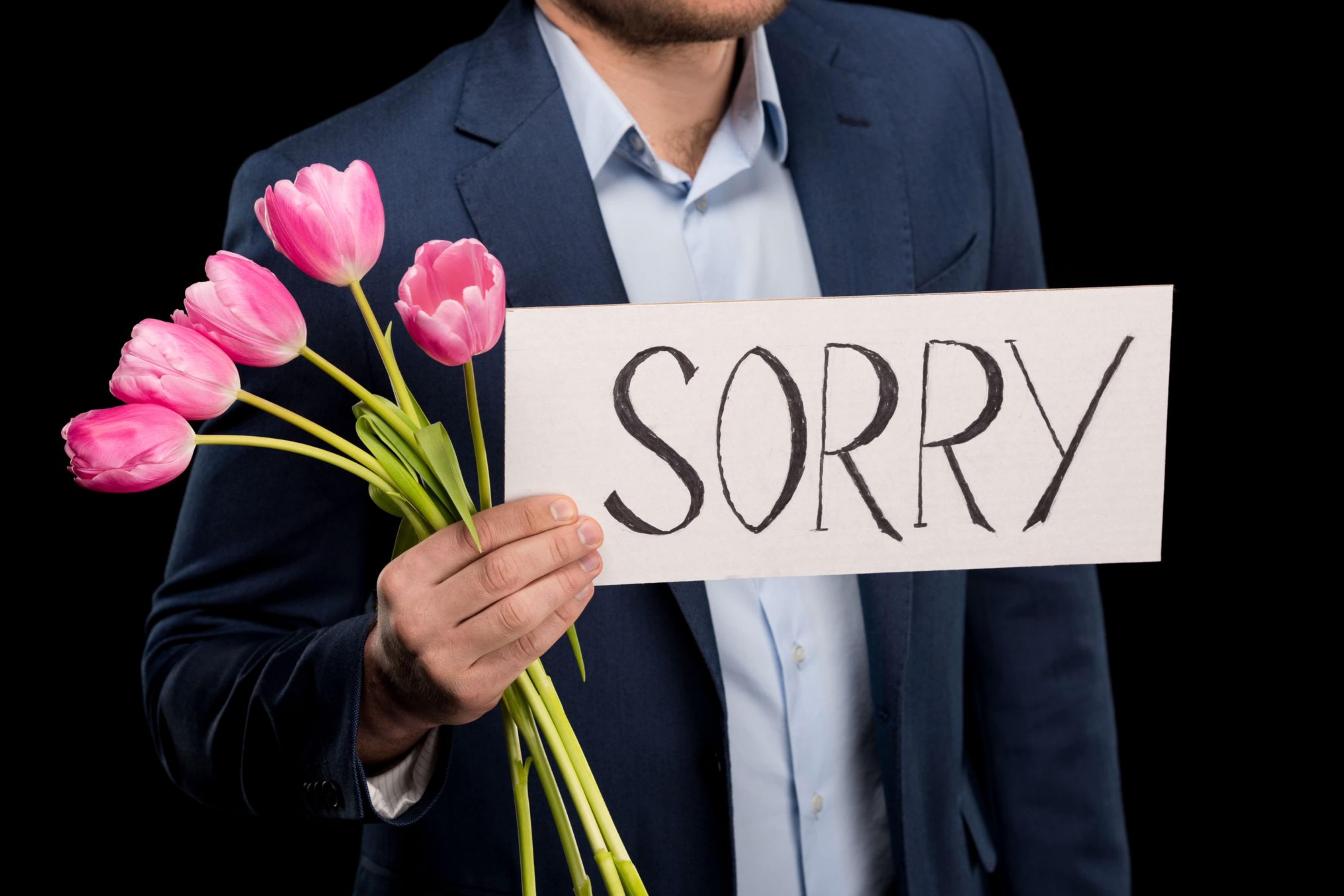Apologies have the incredible power to heal, mend, and strengthen relationships. They form an essential part of our interactions, serving as the glue that binds relationships and fosters peace.
When uttered with sincerity and understanding, an apology can turn a bitter argument into a moment of connection, transform pain into healing, and transmute resentment into forgiveness.
In this digital era, where communication is frequently virtual, and misunderstandings are common, mastering the art of apology is more critical than ever.
Yet, saying “I’m sorry” is not always easy. The following guidelines are designed to help you understand the importance of apology, when to apologize, and how to do it correctly. You’ll also find insights about what research says and intriguing quotes about the power of apology.
The Psychology of Apology
An apology is not just about admitting your mistake; it’s about understanding its impact and taking responsibility. According to researchers, an apology has three components: a sincere expression of regret, acknowledgment of the inappropriate behavior, and a commitment to avoid repeating the behavior.
The Three Components of Apology
- Sincere Expression of Regret: An apology begins with a genuine expression of regret. It’s not merely about uttering the words “I’m sorry” but about expressing your genuine remorse over your actions.
- Acknowledgment of the Inappropriate Behavior: Next, you must acknowledge the error. This shows that you’re aware of your mistake and its implications.
Commitment to Avoid Repeating the Behavior: Lastly, assure the other person that you will try your best not to repeat the mistake. - According to Aaron Lazare, the author of “On Apology,” the power of an apology lies not just in its elements but also in its sincerity. A half-hearted apology can cause more harm than good. “A good apology is like an antibiotic, a bad apology is like rubbing salt in the wound,” he said.

How Apology Makes Your Relationship Better?
Apologies play a pivotal role in enhancing relationships by promoting reconciliation and restoring trust. When we apologize, we’re essentially acknowledging our actions that caused pain or inconvenience, and this act of acknowledgment is a step toward healing.
By saying “I’m sorry,” we’re not only expressing regret for our actions but also empathizing with the hurt person’s feelings, validating their experiences, and assuring them that we understand the impact of our actions. This builds a bridge of empathy and understanding, transforming potential resentment into a moment of connection and intimacy.
Moreover, a sincere apology illustrates our commitment to the relationship and our readiness to accept responsibility. It shows that we value the relationship more than our ego, and we are willing to make changes to prevent repeating the mistake. This willingness to evolve for the sake of the relationship fosters trust and respect.
Over time, these apologies can lead to stronger, more resilient relationships. They can deepen mutual understanding, promote open communication, and pave the way for enhanced emotional intimacy. In essence, apologies are opportunities for relationship growth disguised as moments of conflict resolution.
What Makes Us Apologize In Relationship?
In a relationship, apologies often stem from a variety of situations ranging from unintentional mistakes to significant disagreements. These scenarios often revolve around a breach of trust, communication mishaps, hurtful behavior, or unfulfilled expectations.
Understanding these common reasons can provide insights into how conflicts arise, subsequently aiding in conflict resolution and fostering healthier relationships.

Common Reasons for Apologies in Relationships
- Breach of Trust: This can range from smaller instances like breaking a promise to severe issues such as infidelity. In both cases, an apology is necessary to acknowledge the pain caused and express a commitment to rebuilding the trust that has been broken.
- Communication Mishaps: Misunderstandings or misconceptions can lead to hurt feelings. An apology in these situations helps clarify intentions, reaffirm understanding, and ensures both parties are on the same page.
- Hurtful Behavior: This includes actions that have caused emotional or physical pain, like harsh words, dismissive attitudes, or disrespectful behaviors. Apologizing is the first step towards acknowledging the hurtful behavior and making amends.
- Unfulfilled Expectations: Sometimes, not meeting the expectations of your partner can lead to disappointment, necessitating an apology. This could be forgetting a special occasion or not being there for your partner when needed. An apology in this context signifies the recognition of your partner’s feelings and the intention to do better.
These reasons are not exhaustive, but they represent some of the most common instances where an apology could be needed. Remember, the goal isn’t to avoid all conflict but to navigate through it constructively, with apologies serving as a tool for understanding, healing, and growth.
When to Apologize?
Apologizing at the right time is crucial in any relationship. An untimely or misplaced apology can make the situation worse. The right time to apologize is when you realize that you’ve made a mistake or hurt someone, irrespective of your intentions.

Indications that You Should Apologize
- You realize that your words or actions have hurt someone.
- The other person is upset, and you’re at least partially responsible.
- You’ve broken a promise or didn’t fulfill an agreement.
- You’ve behaved disrespectfully or unkindly.
There’s no universally perfect time to apologize, but there’s a wrong time, and that is “never.” As philosopher, Edmund Burke said, “The only thing necessary for the triumph of evil is for good men to do nothing.”
How to Apologize Effectively?
Knowing how to apologize effectively is vital for repairing and maintaining relationships. Research indicates that an effective apology involves more than just saying, “I’m sorry.” It requires sincerity, empathy, and taking responsibility.
[table id=253 /]
“A hero is someone who can apologize. A coward is someone who can’t,” said American author Richelle E. Goodrich. Apologizing doesn’t make you weak; it makes you brave.
It’s crucial to remember that everyone makes mistakes, but what sets us apart is how we handle those mistakes. An apology may seem like a small step, but it can mend fences, heal wounds, and even strengthen bonds.
It is a testament to our capacity for empathy, our humility, and our desire for genuine connection. So, let’s not underestimate the power of a sincere “I’m sorry.” It could be the three most impactful words you’ll ever say.
Why Apologies Fail?
Despite our best intentions, not all apologies succeed. In fact, some can even deepen the wounds they’re meant to heal. Understanding why some apologies fail can help us avoid these pitfalls and make our apologies more effective.
Common Reasons Apologies Fail
- Lack of Sincerity: An insincere apology can feel worse than no apology at all. It conveys a lack of respect and understanding.
- Defensiveness: If an apology includes excuses or attempts to shift the blame, it can negate the apology and even escalate the conflict.
- Vagueness: An apology should specify the hurtful behavior. Vagueness can indicate a lack of understanding or unwillingness to take full responsibility.
- Lack of Change: An apology loses its meaning if the hurtful behavior continues. A key aspect of an apology is a commitment to change.
“Never ruin an apology with an excuse,” said Benjamin Franklin, one of the founding fathers of the United States. His quote rings as true today as it did centuries ago, reminding us that genuine contrition doesn’t seek escape routes.

The Impact of an Apology on the Apologizer
We often focus on how an apology impacts the person receiving it, but an apology can also have a profound effect on the person offering it. Apologizing requires self-reflection, acknowledgment of one’s faults, and humility—traits that contribute to personal growth and development.
Impacts of Apology on the Apologizer
- Facilitates self-awareness and growth
- Fosters humility
- Develops empathy and understanding
- Strengthens personal integrity
- Builds resilience and problem-solving skills
According to a study, people who apologize are more likely to feel relieved and less stressed, and more empathetic. It’s not just about mending fences with others but also about fostering peace within oneself.
“In this life, when you deny someone an apology, you will remember it at the time you beg forgiveness,” observed American writer Toba Beta. This quote serves as a reminder that offering an apology can be a deeply personal journey toward understanding, growth, and empathy.

The Art of Apology in the Digital Age
In this era of texts, emails, and social media, the art of apology has taken on new dimensions. An apology made digitally requires careful consideration to ensure it comes across as sincere and genuine.
Tips for Apologizing in the Digital Age
- Choose the Right Medium: If possible, apologize in person or over a video call. The digital format can sometimes dilute the emotional nuances of an apology.
- Mind Your Tone: Tone can be hard to read in text. Be clear and unambiguous about your regret and responsibility.
- Take Your Time: Don’t rush a digital apology. Think about what you want to say and how to say it.
- Be Clear: Use explicit language that leaves no room for misinterpretation.
Apologies in the digital era require careful navigation. As we adapt to evolving communication tools, we should remember the timeless wisdom of American author and motivational speaker Zig Ziglar, “It’s one thing to say you’re sorry; it’s another thing to show you’re sorry.”

Wrapping Up
Mastering the art of apology is an ongoing journey, and every situation provides a unique learning experience. An apology is more than a mere act—it’s a testament to our capacity for empathy, humility, and understanding. The ability to apologize, and to do it effectively, is one of the most essential skills for maintaining healthy relationships.
Remember, as the famous British author and poet Rudyard Kipling once said, “A man is not finished when he is defeated. He is finished when he quits.” Similarly, a relationship is not over when a mistake is made; it can be over when one fails to acknowledge and apologize for that mistake.
In this journey of understanding and expressing regrets, let’s keep striving to perfect the power of our apologies and cherish the relationships we mend and grow along the way.

[wp-faq-schema title=”Frequently Asked Questions”]

Why do some apologies feel insincere?
Some apologies may feel insincere if they lack genuine remorse, fail to acknowledge the specific behavior that caused harm, or offer no commitment to change. An apology needs to be heartfelt and specific to feel genuine.
I apologized, but my partner didn’t accept it. What should I do?
Give them some time. An apology is the first step toward mending a relationship, but it doesn’t guarantee immediate forgiveness. It’s important to show through your actions that your apology is sincere and you’re willing to make changes.
Is apologizing a sign of weakness?
Not at all. Apologizing requires courage, humility, and emotional intelligence. It shows that you’re brave enough to admit your mistakes and mature enough to make amends.
What if I apologize too much? Is that a problem?
Over-apologizing can sometimes dilute the impact of your apologies and might indicate a lack of confidence or a tendency to take undue responsibility for things. It’s important to apologize when you’re genuinely at fault but also to stand your ground when you’re not.
How can I apologize if I don’t think I was wrong?
Even if you don’t feel you were wrong, it’s important to acknowledge the other person’s feelings. You can apologize for the way your actions made them feel, even if those actions seemed right to you.
Why is it so hard to apologize sometimes?
Apologizing can be hard because it requires admitting to a mistake and showing vulnerability. It can be especially difficult if you fear the apology might not be accepted or you’re concerned about losing face.
Can an apology fix a broken relationship?
While an apology can be a step towards mending a broken relationship, it’s not a magic fix. Repairing a relationship requires time, and effort and often involves changing behavior patterns, rebuilding trust, and open communication.
Is it better to apologize in person, or can I do it over text?
Whenever possible, it’s usually better to apologize in person because it allows for a more personal connection and reduces the chances of misunderstanding. However, if this isn’t possible, a heartfelt text or letter can also work.
How can I show that I mean my apology?
The best way to show you mean your apology is by changing your behavior and avoiding the mistake in the future. Actions often speak louder than words, so follow through on your commitments and show the person you’re sincere.
How long after a mistake should I apologize?
It’s best to apologize as soon as you realize you’ve made a mistake or hurt someone. However, if some time has passed, it’s never too late to apologize. A sincere apology can still help heal old wounds.